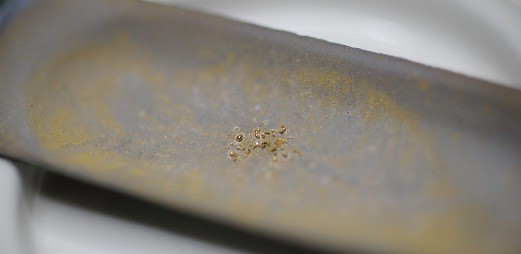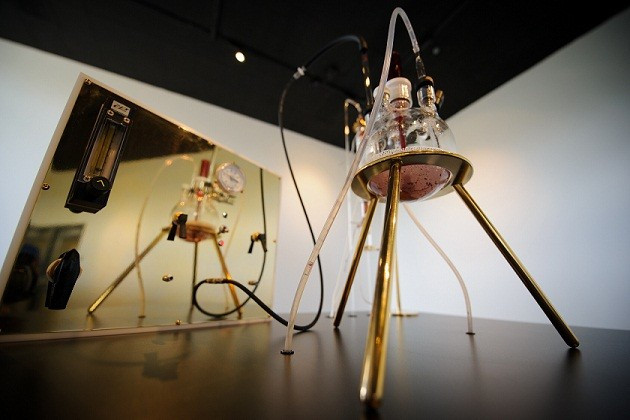Scientists Discover Bacteria Which Produces 24-Carat Gold

Researchers have discovered bacteria which can produce 24-carat gold because of its ability to withstand huge amounts of toxicity.
Scientists at Michigan State University have found the metal-tolerant bacteria cupriavidus metallidurans can grow on massive concentrations of liquid gold - otherwise known as gold chloride, a toxic chemical found in nature - and turn it into 24-carat gold in just a week.
The process, which is referred to as microbial alchemy, was discovered by Kazem Kashefi, assistant professor of microbiology and molecular genetics at Michagan University, and Adam Brown, associate professor of electronic art and intermedia.
Kashefi said that he and his team are "transforming gold from something that has no value into a solid, precious metal that's valuable."
Unfortunately the process is not an answer to the world's economic problems as it is not cost-effective and is instead being used as an art installation entitled The Great Work of the Metal Lover.
As part of the installation, Brown and Kashefi feed the bacteria unprecedented amounts of gold chloride, mimicking the process they believe happens in nature. In about a week, the bacteria transforms the toxins and produces a gold nugget.
The artwork, which features a potable laboratory, then produces the golden nougats in front of a live audience.
While it is not a quick-fire way to cash-in on the rocketing price of gold, Brown argues the work still has some importance because of its ability to "push scientific inquiry".
Brown added: "Science tries to explain the phenomenological world. As an artist, I'm trying to create a phenomenon.
"Art has the ability to probe and question the impact of science in the world, and 'The Great Work of the Metal Lover' speaks directly to the scientific preoccupation while trying to shape and bend biology to our will within the postbiological age."
The Great Work of the Metal Lover is currently on display Prix Ars Electronica, in Austria.

© Copyright IBTimes 2025. All rights reserved.






















